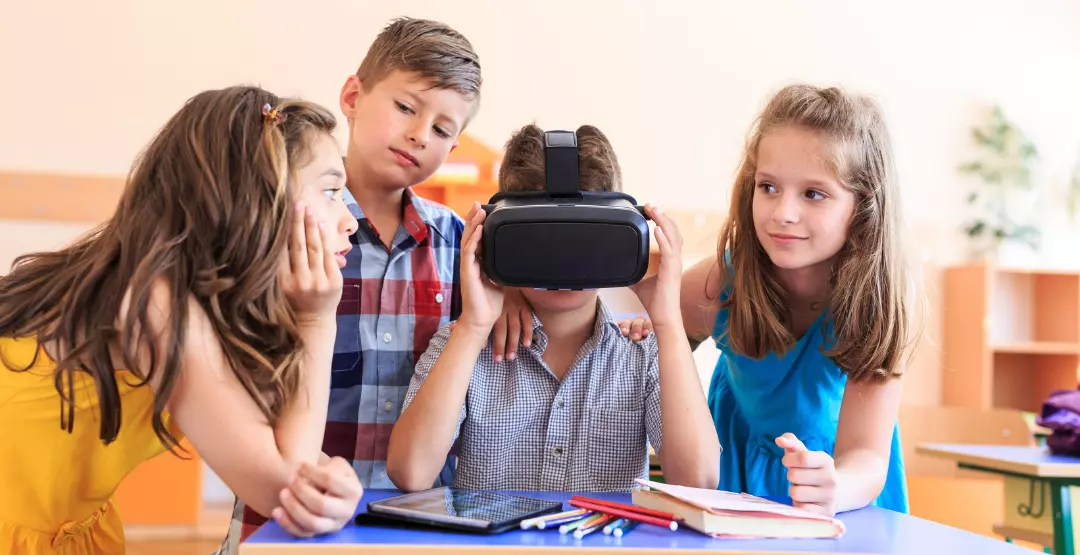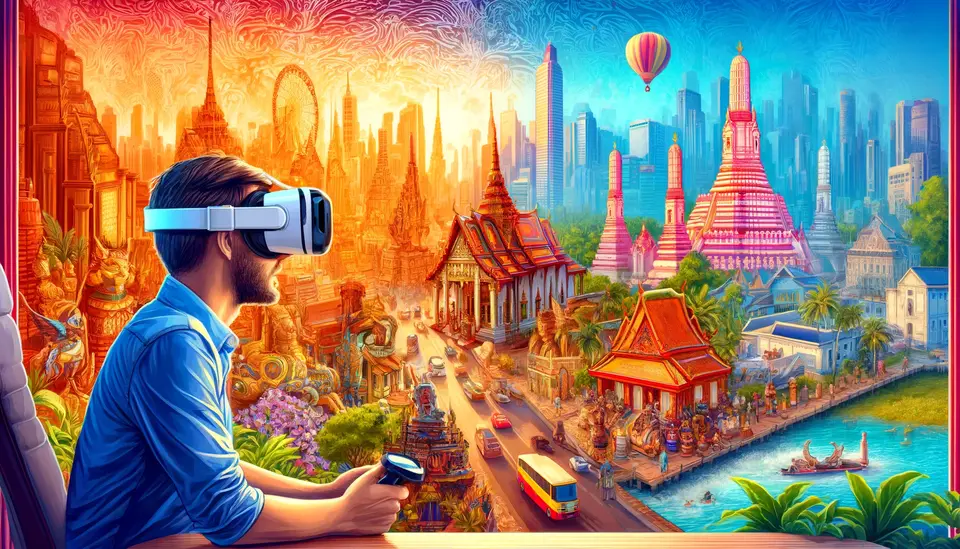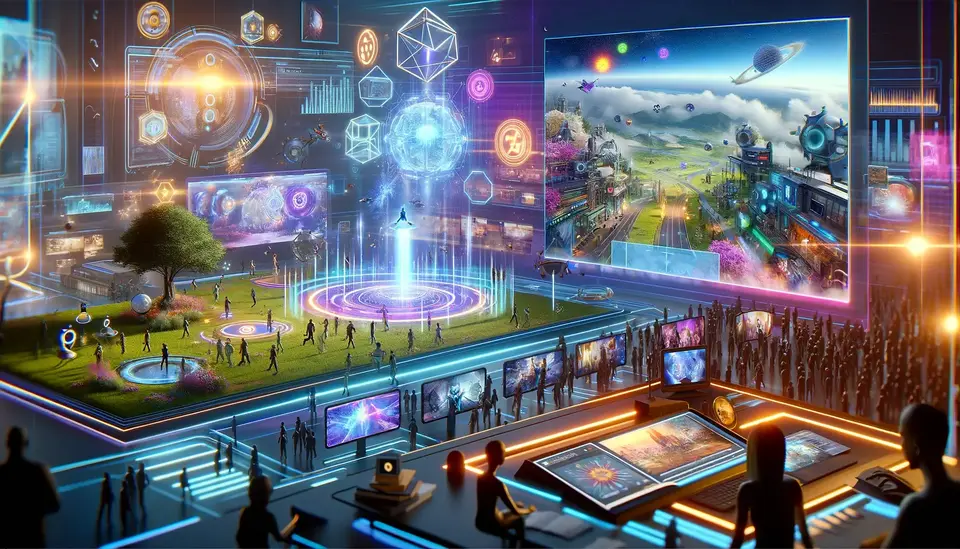15 Examples of the Use of Metaverse in Education
Posted on May 3, 2023 4 minutes 692 words
Table of contents
- 1. Virtual field trips - Google Expeditions
- 2. Collaborative learning environments - VirBELA
- 3. Language immersion - Mondly
- 4. Gamification - Classcraft
- 5. Virtual internships and job shadowing - ImmerseMe
- 6. Remote tutoring - Brainly
- 7. Inclusive education - Immersive Reader by Microsoft
- 8. Skills training simulations - Osso VR
- 9. Interactive textbooks and learning materials - Top Hat
- 10. Augmented reality labs - Labster
- 11. Social-emotional learning - Harmony SEL
- 12. Cultural exchange programs - PenPal Schools
- 13. Project-based learning - CoSpaces Edu
- 14. Personalized learning paths - DreamBox
- 15. Professional development for educators - Teachable
- Conclusion
The Metaverse, a collective virtual shared space that combines augmented reality, virtual reality, and internet-based communication platforms, is shaping the future of education. In this blog post, we will dive deeper into 15 real-world examples of the Metaverse being used in education, offering insights into how these innovative applications are revolutionizing learning and teaching.
1. Virtual field trips - Google Expeditions
Google Expeditions allows students to explore museums, historical sites, and natural wonders through immersive virtual reality experiences. This platform offers over 900 VR and AR tours, enhancing learning by providing firsthand experiences without leaving the classroom.
2. Collaborative learning environments - VirBELA
VirBELA is a virtual world platform that enables students and educators to collaborate in real-time within a 3D environment. With customizable avatars, voice communication, and interactive tools, VirBELA fosters global connections and collaborative learning.
3. Language immersion - Mondly
Mondly’s VR language learning app uses virtual reality to immerse students in real-life scenarios with native speakers, enhancing language acquisition through interactive conversations and cultural experiences.
4. Gamification - Classcraft
Classcraft is an educational platform that gamifies the learning experience through role-playing, quests, and collaboration. Students develop teamwork, problem-solving, and critical thinking skills while staying engaged and motivated.
5. Virtual internships and job shadowing - ImmerseMe
ImmerseMe connects students with virtual internships and job shadowing opportunities across various industries, providing valuable real-world experience and insights into potential career paths.
6. Remote tutoring - Brainly
Brainly is a global learning community that connects students with tutors and subject-matter experts from around the world. This platform offers personalized support and guidance through real-time collaboration and communication tools.
7. Inclusive education - Immersive Reader by Microsoft
Microsoft’s Immersive Reader is a learning tool that improves reading comprehension and accessibility for students with disabilities. The tool offers text-to-speech, adjustable font sizes, and visual aids, creating a more inclusive learning environment.
8. Skills training simulations - Osso VR
Osso VR provides realistic, hands-on surgical training simulations that allow medical students to practice procedures in a risk-free environment, improving skill development and patient outcomes.
9. Interactive textbooks and learning materials - Top Hat
Top Hat is an active learning platform that offers interactive, multimedia-rich textbooks and learning materials. These digital resources adapt to individual learning preferences and provide immediate feedback, enhancing the learning experience.
10. Augmented reality labs - Labster
Labster’s virtual science labs enable students to conduct experiments and manipulate digital objects in an immersive, risk-free environment. This platform offers over 150 virtual labs across various scientific disciplines, promoting deeper understanding of complex concepts.
11. Social-emotional learning - Harmony SEL
Harmony SEL is a comprehensive social-emotional learning program that uses immersive simulations and role-playing to help students develop emotional intelligence, empathy, and conflict resolution skills.
12. Cultural exchange programs - PenPal Schools
PenPal Schools connects students from around the world through project-based learning, fostering cross-cultural understanding and global citizenship. This platform encourages collaboration and communication among students from diverse backgrounds.
13. Project-based learning - CoSpaces Edu
CoSpaces Edu is a virtual workspace that allows students to design, build, and showcase their projects in a collaborative 3D environment. This platform supports STEAM education, creativity, and problem-solving skills.
14. Personalized learning paths - DreamBox
DreamBox is an AI-driven adaptive learning platform that tailors math instruction to individual student needs, preferences, and progress. By offering personalized learning paths, DreamBox increases student engagement and achievement.
15. Professional development for educators - Teachable
Teachable is an online platform that provides educators with opportunities for professional development through virtual conferences, workshops, and courses. Teachers can access a wide variety of resources on the latest trends, research, and best practices in education, empowering them to continually improve their teaching skills.
Conclusion
The Metaverse is revolutionizing education by creating immersive, interactive, and engaging learning experiences that transcend geographical boundaries. These 15 real-world examples demonstrate the incredible potential of the Metaverse in transforming education, from expanding access to quality resources to fostering global collaboration and personalization. As technology continues to evolve, the possibilities for the Metaverse in education are truly limitless, paving the way for a more connected, accessible, and dynamic learning environment.








